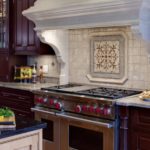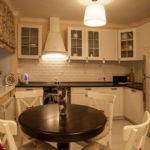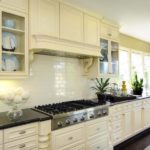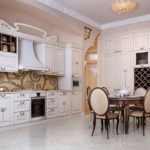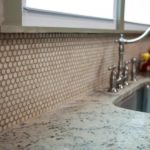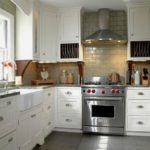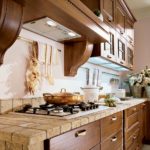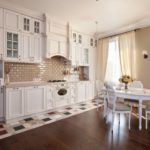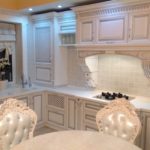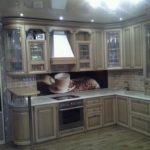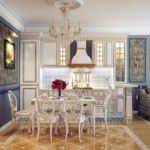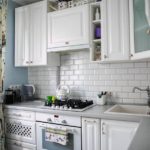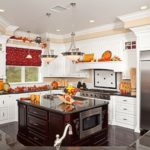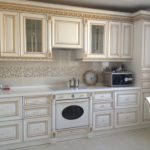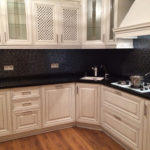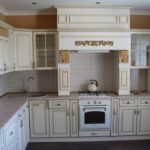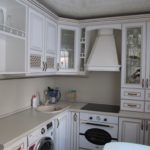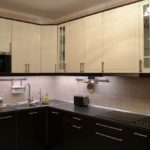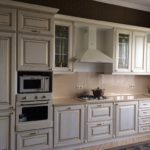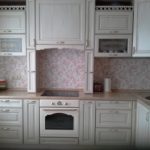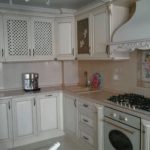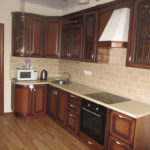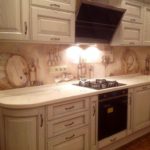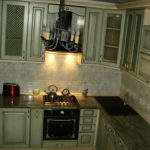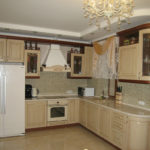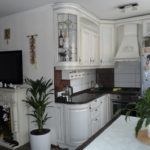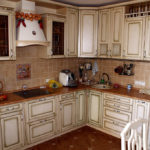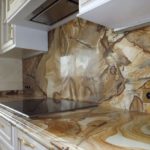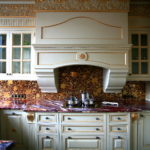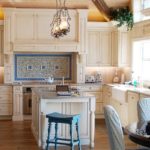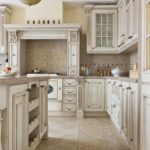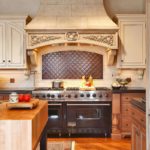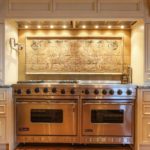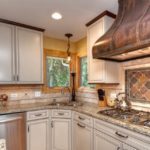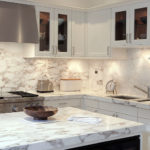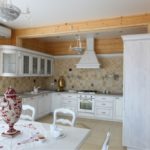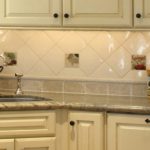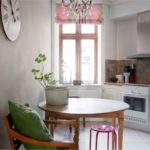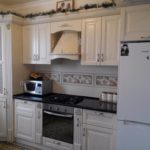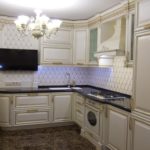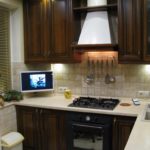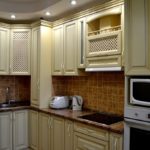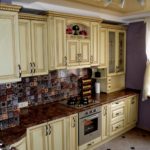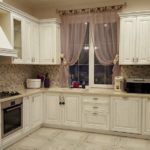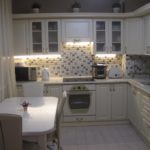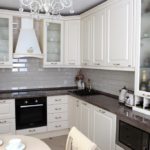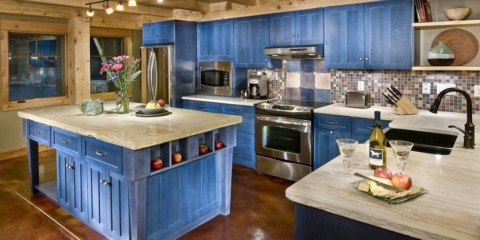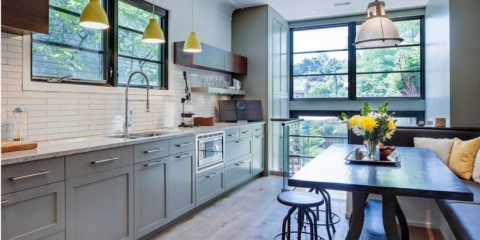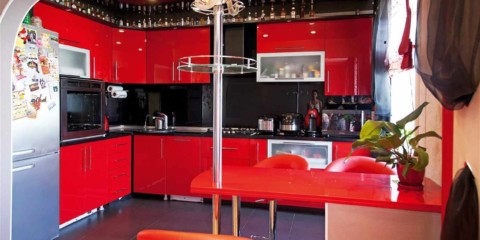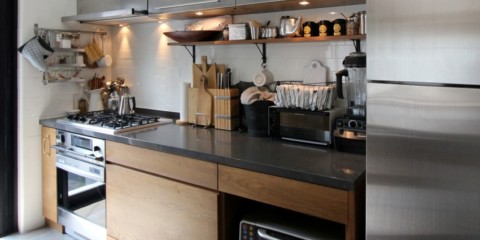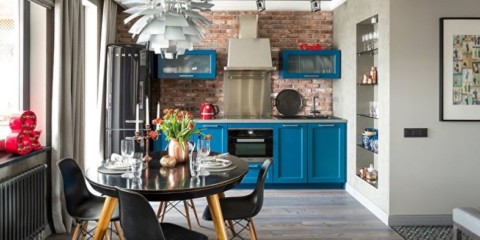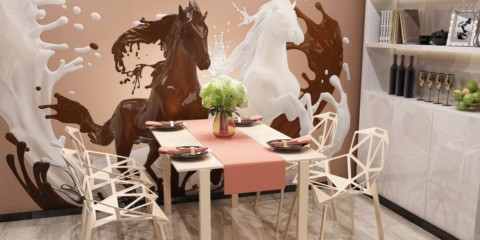 Kitchen
Ten nuances when choosing photo wallpaper in the interior of the kitchen
Kitchen
Ten nuances when choosing photo wallpaper in the interior of the kitchen
Apron - a protective coating of the walls in the working area of the countertop. It is designed to prevent their spoilage and pollution during cooking, and also serves as a decor, complementing the kitchen set and the design of the kitchen as a whole. The stylization of the kitchen determines the appearance of the apron.
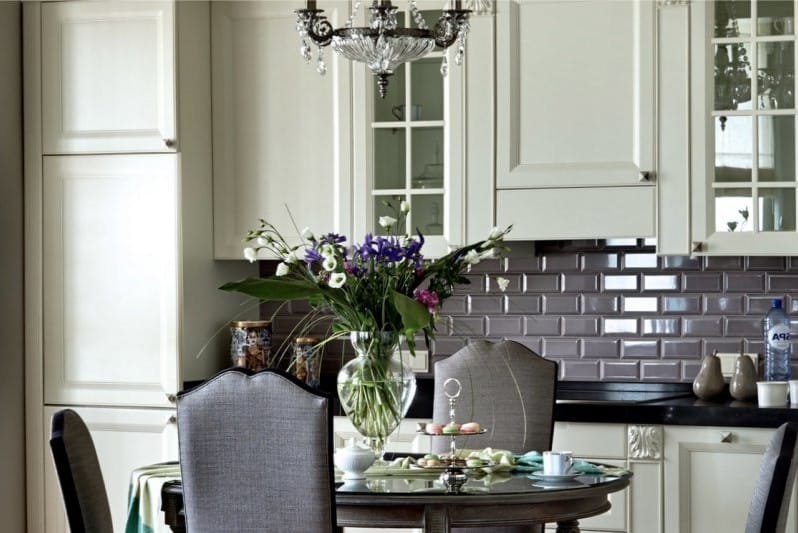
In a classic kitchen, an apron can become the most catchy design element
The design of the apron in the design of the kitchen in the style of the Classic
Content
The concept of classic cuisine is rather vague and vague. The traditional interior includes kitchens with straight, clear lines, a minimal amount of stucco and carving. With a predominantly plain finish on the floor, walls and ceiling. As a rule, made of natural materials.
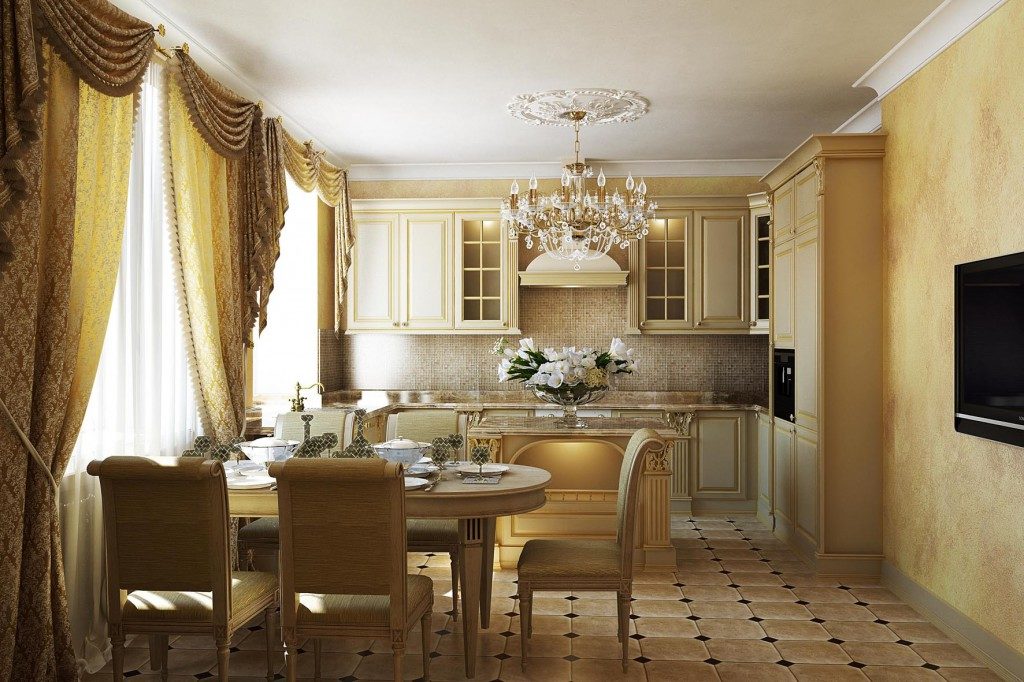
The luxury of modern classics is based on details. Wood, stone and metal are priority materials when choosing finishes and furniture
The color scheme is mostly light, although there are also dark wood options. In such interiors, a classic kitchen apron is usually made plain, using glass or tile.
Classical include kitchens in the palace style - Baroque, Rococo, Victorian. In these cases, gilding, artsy carvings and polished wood are actively used.
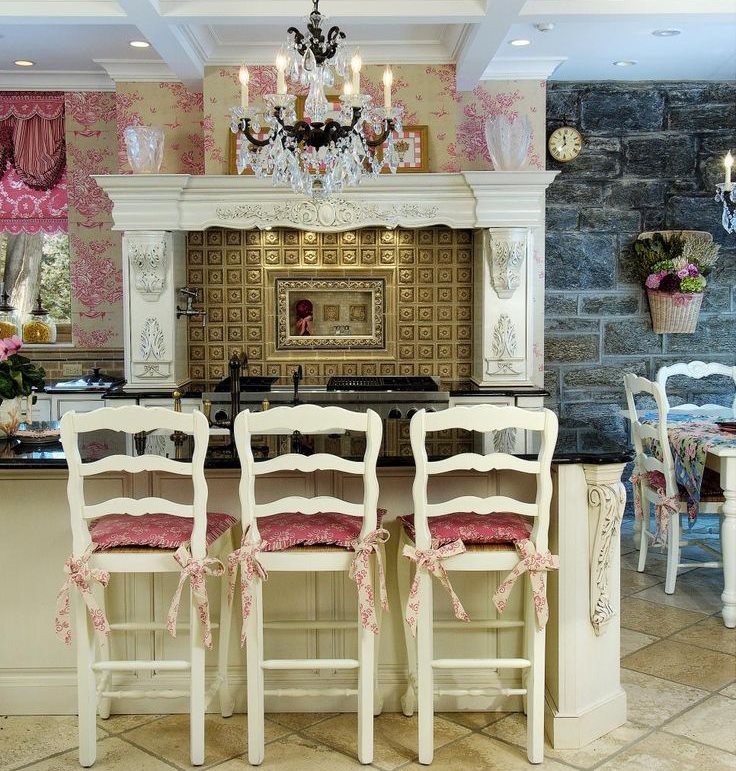
Addiction to excesses is a hallmark of baroque
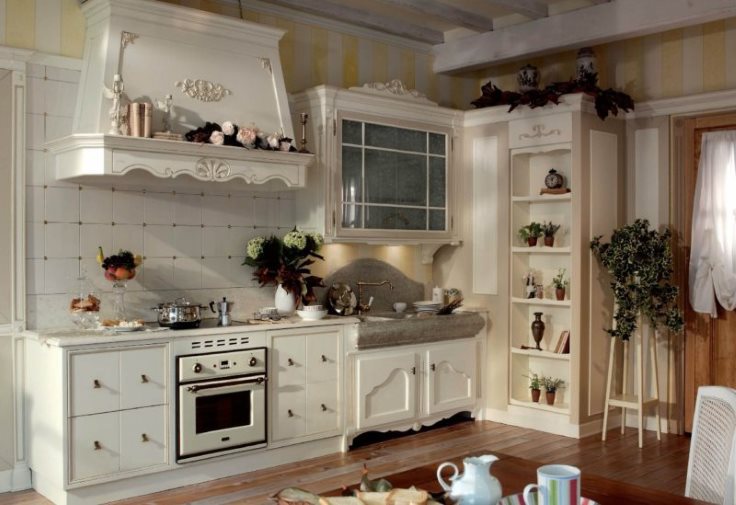
Rococo is characterized by elegance, functionality and comfort, created by a huge amount of decor
Kitchen design in the style of "Provence" is also attributed to the classic version. To design such an apron, shades of beige, floral ornaments, imitation of wild stone are suitable.
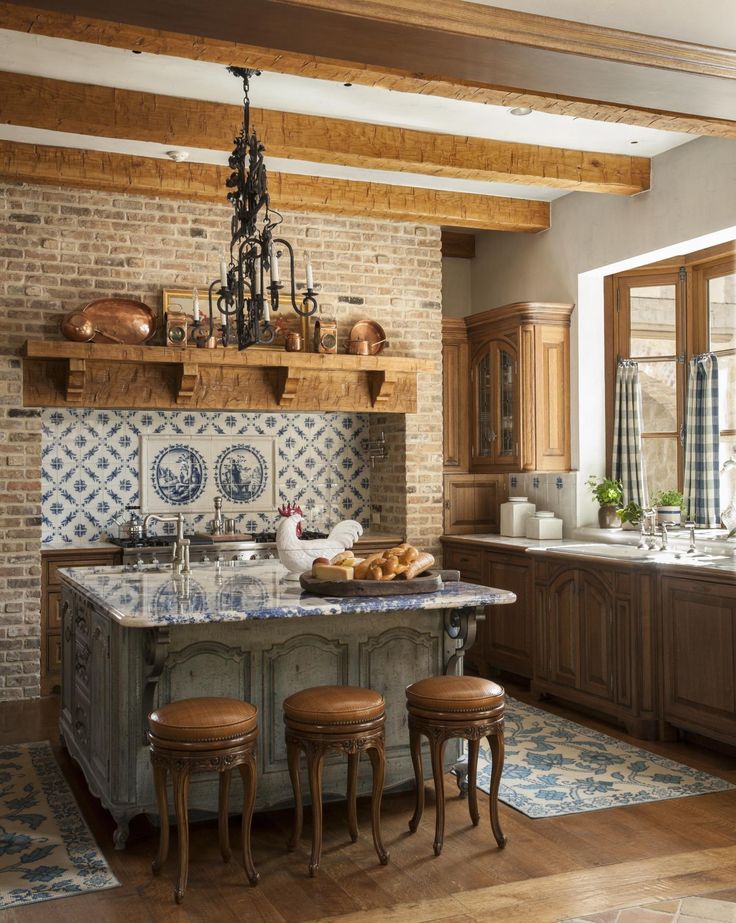
French Provence Loves Light-Aged Materials
Classic apron materials for the kitchen
An apron for a classic kitchen can be made of various materials.
Made of plastic
The option is very budgetary and completely impractical. Plastic panels are short-lived, quickly lose their presentable appearance. They burn out in the sun, are subject to scratches and are incompatible with gas stoves.
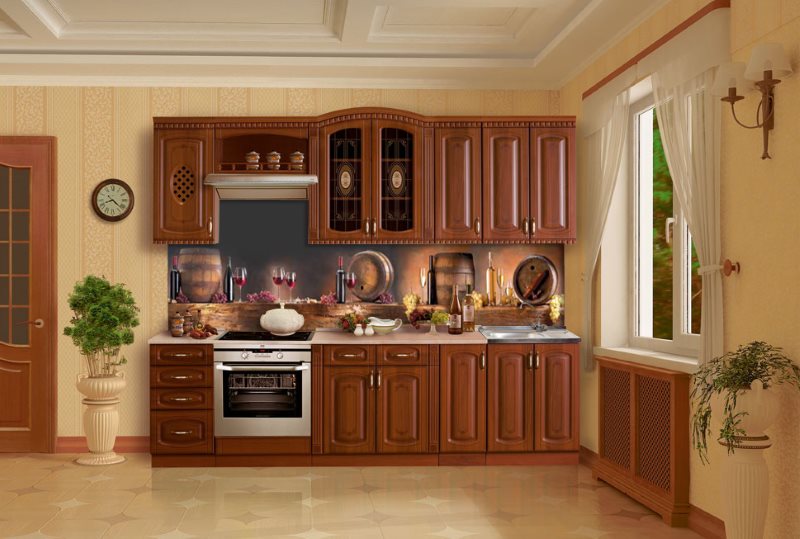
The most durable among plastics is an apron made of ABC panels, which cost a little more than PVC products
- Of the benefits. Cheap, easy and quick to install even on their own, do not require a perfectly flat wall surface for installation.
From glass
Tempered glass wall panels are a good choice for apron design. They are durable and easy to care for. They are made of transparent, colored, tinted, frosted or glossy glass. A transparent screen can be installed on top of a wallpaper or a wooden apron. The ability to print makes glass panels (skins) simply a universal tool for creating designs in any style. Easy and quick to install.
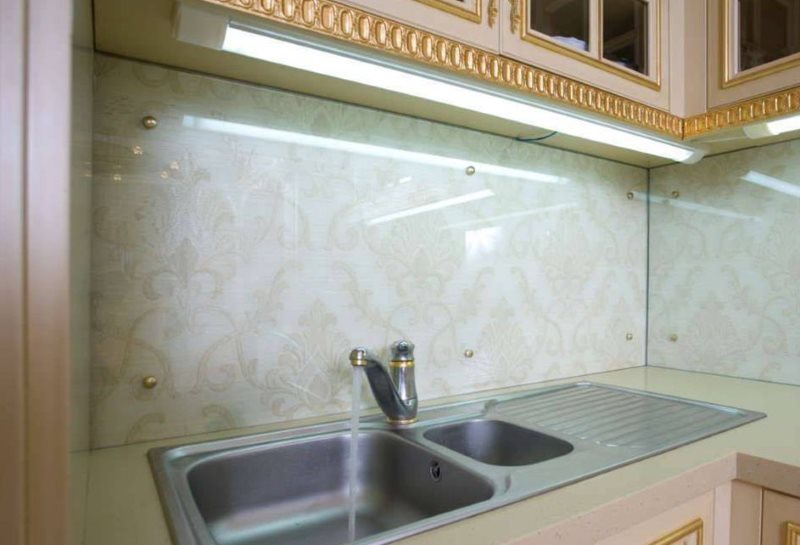
The glass apron can be patterned or transparent, protecting the existing wall trim
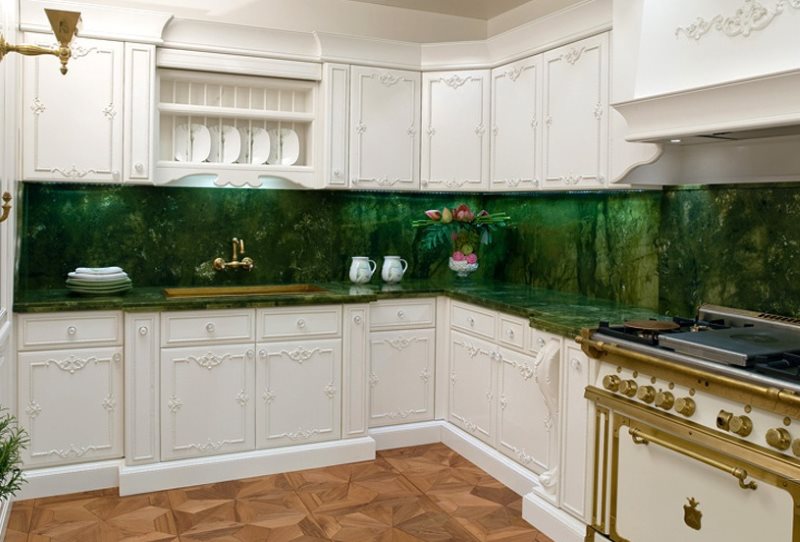
Skinali with photo printing - the most popular type of glass apron today
- Of the shortcomings. High cost, the inability to fit at the assembly site. Skinali are made exactly to the size of the apron, and changing them during the installation process will not work.
Note! Fingerprints and splashes of grease are very noticeable on a glossy surface.But they are easily washed with glass cleaning products.
Ceramic tile
The kitchen apron made of ceramic tiles is easy to clean and has an optimal price / quality ratio. A variety of colors, textures and decors will help to realize the most daring projects. Any kitchen design in classic style can be done with tiles. Ceramics can imitate various materials - from stone to wood.
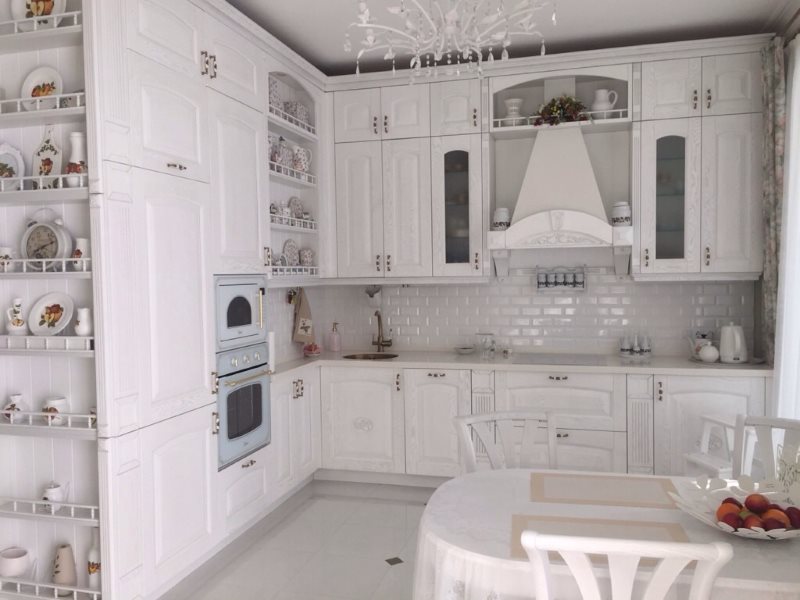
In a classic kitchen, an apron is often chosen to match the furniture or in similar colors.
A tile in the style of "boar" is considered a universal option for decorating an apron.
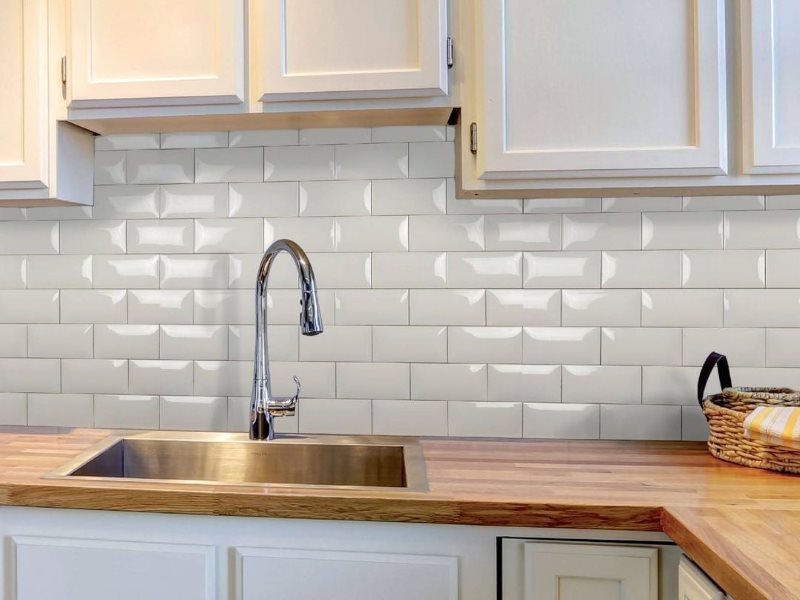
Tile "boar" is a type of small-format ceramic tiles of rectangular shape
Important! The rough surface of the tile is difficult to maintain. Prefer a smooth texture.
-
- Disadvantages. Requires experience and professionalism for styling. Changing the design of the apron will be quite problematic.
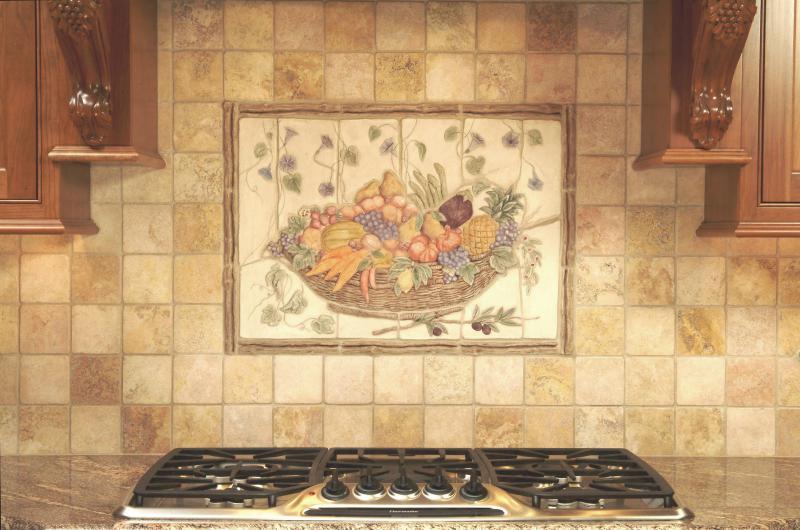
The central part of the ceramic apron can be decorated with a relief insert
From porcelain tile
Porcelain tiles look like ceramic tiles. But for its production several grades of clay are used, as well as quartz sand and silicate. The pigment is added to the tile in the process of mixing clay, so it is painted completely in a given color, unlike ceramics, in which paint is applied only to the surface.
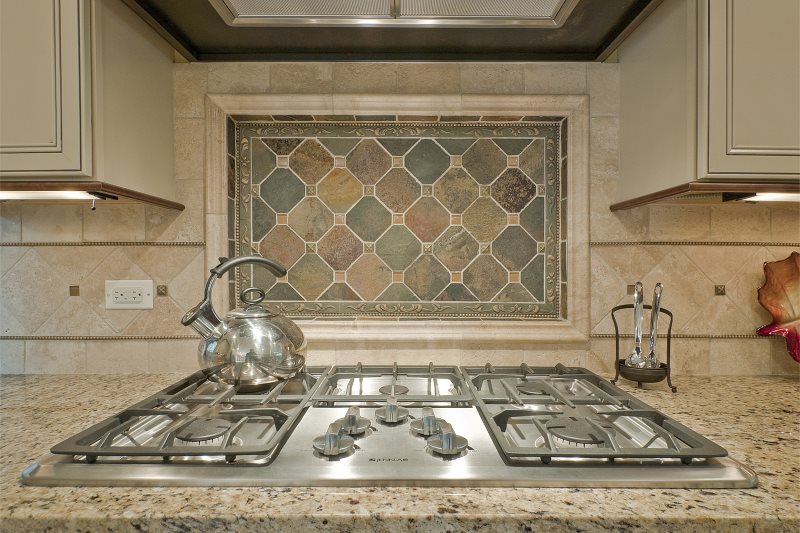
Porcelain tile is perfectly combined with other finishing materials
Porcelain tile is characterized by increased strength, durability, which makes it the subject of choice for the design of a kitchen apron.
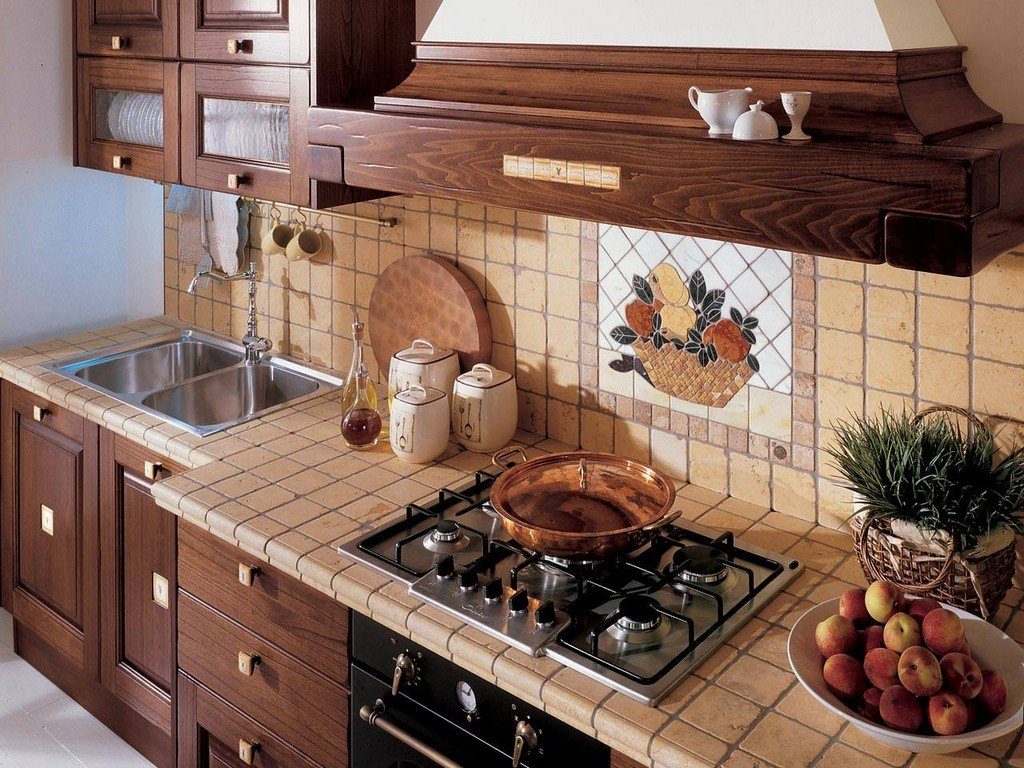
Matte tiles are the most affordable version of porcelain products.
For these purposes, matte, glazed, and polished porcelain tiles are suitable. Mineral salts are added to the composition of satin porcelain stoneware, which makes it resistant to the growth of bacteria.
- Minuses. High price. It requires perfectly even walls, special adhesive solutions, it is very heavy and requires special metal profiles for installation. Fragile, difficult to cut openings for sockets and switches. A small selection of designs.
From metal
An apron made of metal is not suitable for decorating a kitchen in a classic style. Brushed or glossy stainless steel will not be combined with the natural materials of the kitchen set, and it will be completely out of place in a Baroque design or Provence. Such an apron is best used in the design of the working area of modern kitchens.
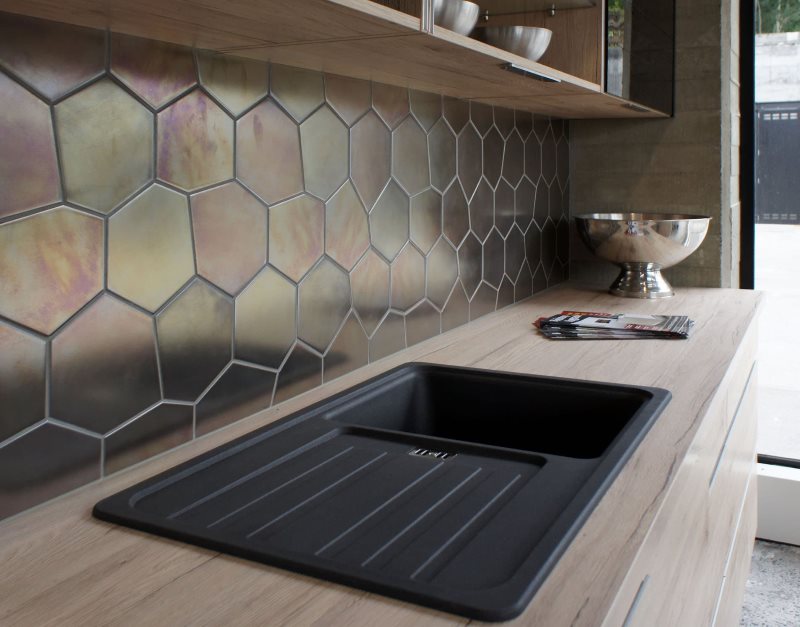
Apron metal mosaic in modern kitchen
From MDF and particleboard
MDF and particleboard are cheap, easy to install even on curved walls. Imitate natural wood, well suited for classic style and provence.
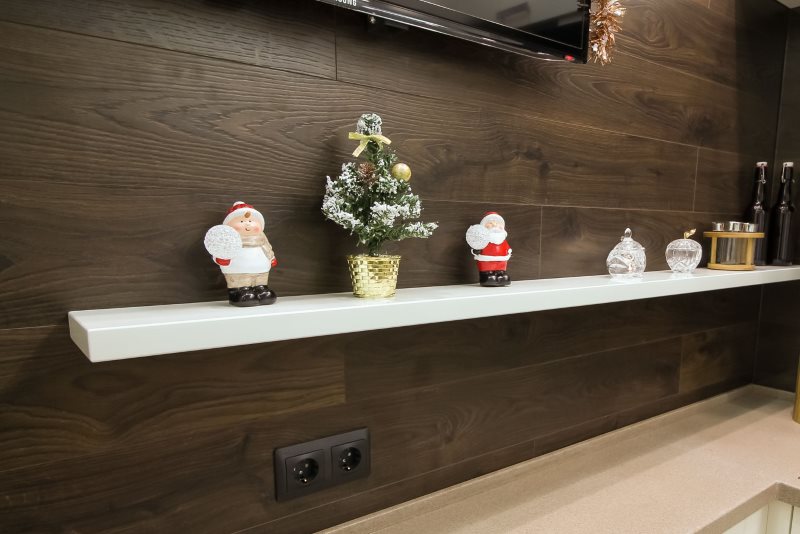
High-quality imitation of wood looks quite natural, therefore, is in demand
- Disadvantages. For all its positive qualities, they are not practical, sensitive to cleaning agents, easily inflammable and not suitable for kitchens that use an open flame.
Natural and artificial stone
An apron made of natural granite is perhaps the most beautiful. White, beige, gray-pink, brown, blue granite fits perfectly into any classic interior. It is heavy-duty, does not absorb pollution, is easy to care for and incredibly beautiful.
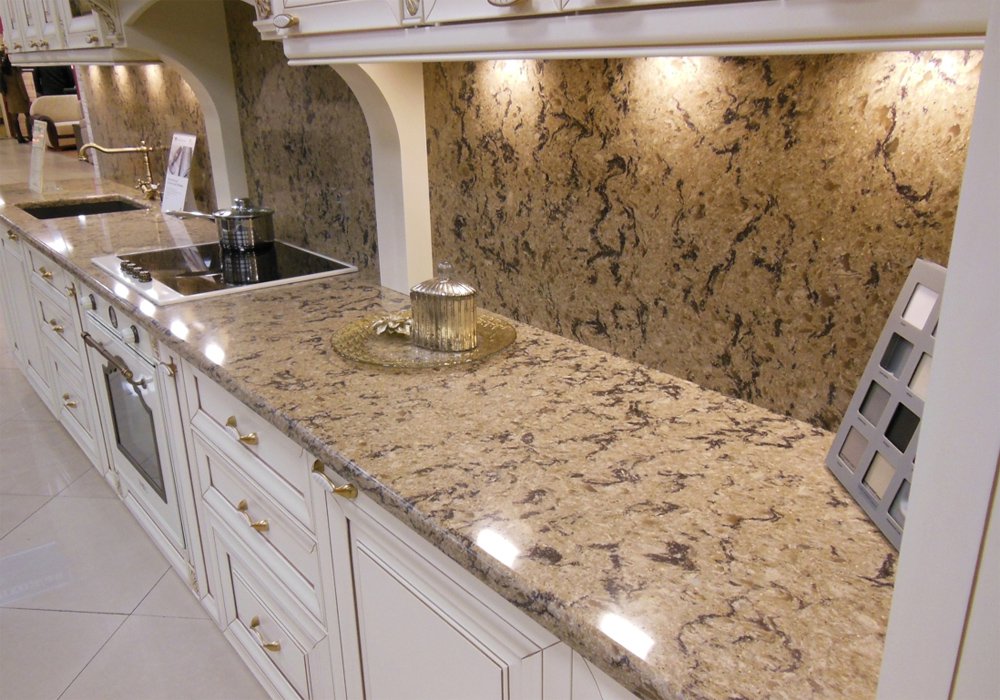
Granite can be trimmed with an apron, countertops and kitchen floor
But the marble apron is not so unpretentious. It absorbs moisture, becomes cloudy over time and is prone to the formation of persistent food stains.
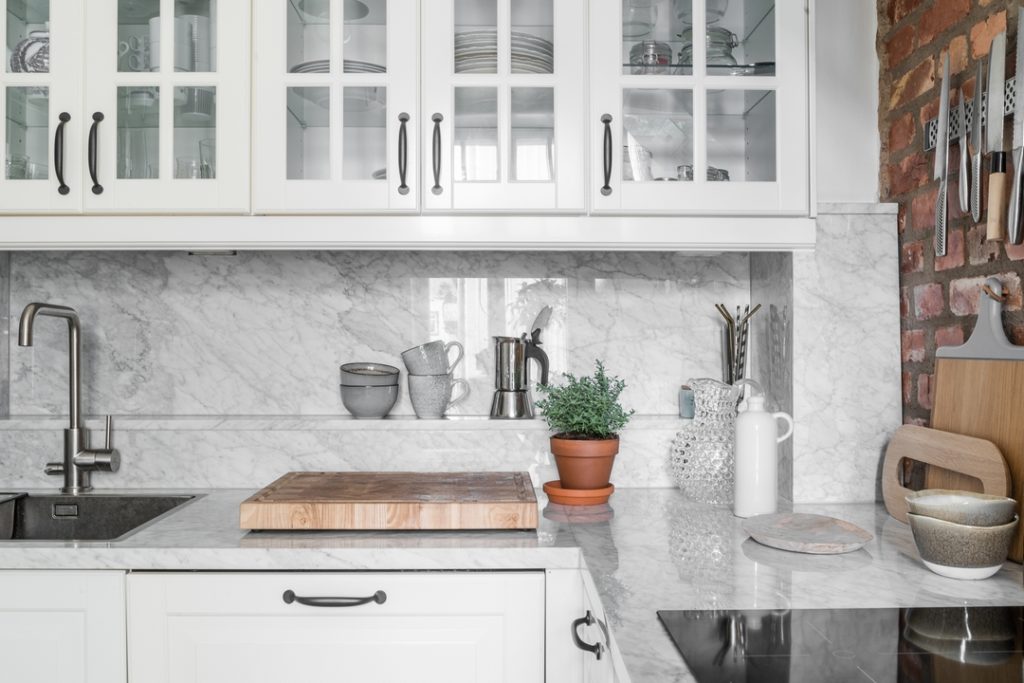
Marble is perhaps the most beautiful and at the same time moody stone. However, if the marble is well polished, it can last quite a while.
- Of the shortcomings. High price. Poor granite can be radioactive.
Artificial stone is also beautiful, easy to care for, but very expensive.
Mosaic for the kitchen in a classic style
Mosaic for finishing an apron of the kitchen is very beautiful, although expensive and time-consuming option.It can be made of various materials: glass, ceramics, porcelain stoneware and stone, and undoubtedly corresponds to the concept of a classic style in the interior.
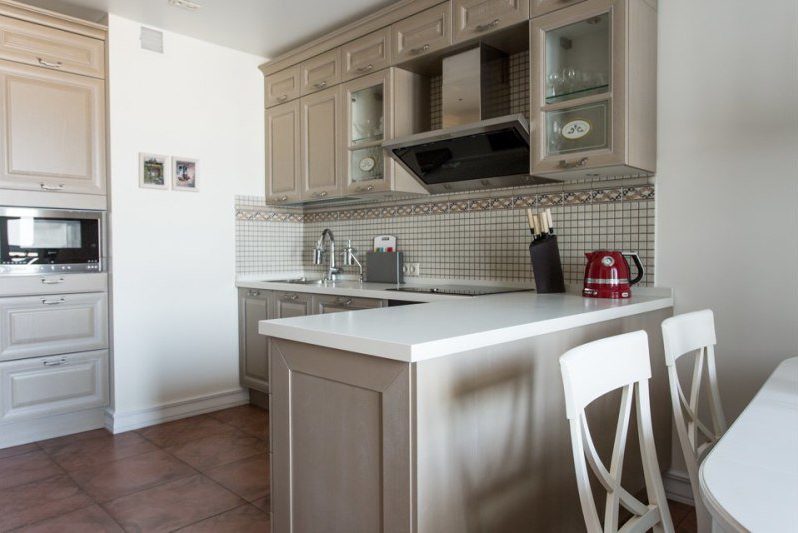
Mosaic is good because it seems more “manual” work and allows you to trim curved surfaces
Depending on the design decision, the following is used in the interior of the kitchen:
- monocolor - all mosaic tiles of one shape and one color;
- mix - different shades of tiles, but they are all of the same shape and size (the cost of such an apron will depend on the number of shades);
- panel - when a mosaic forms a specific composition with a corresponding image.
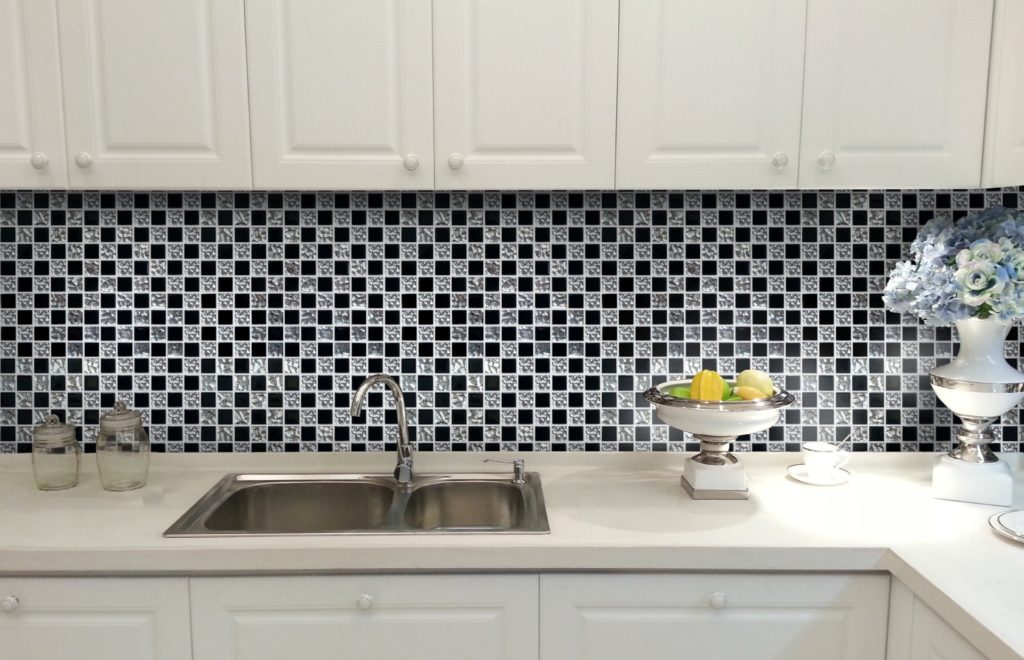
Motley mosaic is appropriate against the background of a monophonic headset. Plain panel is best suited for an interior full of vibrant colors and patterns.
To create an interior when decorating an apron for a kitchen in a classic style, a mosaic of various materials is suitable:
- Ceramic - matte and glossy, smooth, with the effect of antiquity, it differs from large format tiles in the subtlety and grace of design, in terms of its technical characteristics it is not inferior to it at all. It is also moisture resistant and durable. But it costs many times more, it requires a large amount of materials, effort and time for laying.
- Glass - costs less than ceramic, is unpretentious in leaving and is also beautiful. It comes from glass with the addition of sparkles, metal oxides, minerals. She can imitate mother of pearl and precious stones. A particularly durable smalt smalt - a mosaic of baked glass, can even be used in the design of the kitchen floor.
- Stone - from natural onyx, marble. Such an apron will be expensive, can be combined with glass mosaic, smalt.
- Of porcelain stoneware - more durable than stone or ceramic, but the choice of colors is limited by beige and brown and gray.
- Mother of pearl - perfect for an apron of classic cuisine, especially in palace styles. Thanks to the refraction of light rays, it seems to be highlighted and flickers from the inside with rainbow tints.
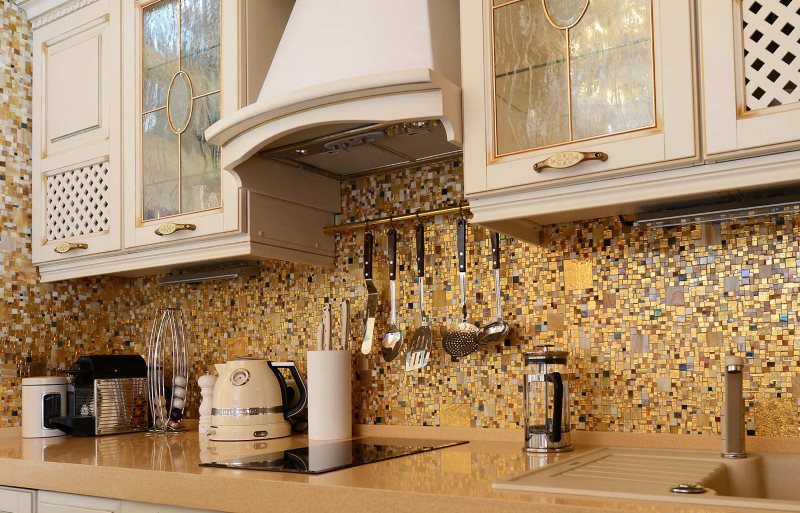
If the budget allows, it is better to choose an epoxy compound for grouting, which is much more durable and more practical
Glass apron for the kitchen in a classic style
Finishing the work area with glass panels has a lot of advantages. It is practical and looks good in the kitchen in the spirit of neoclassicism and provence. The main thing is to take into account the general style of the room.
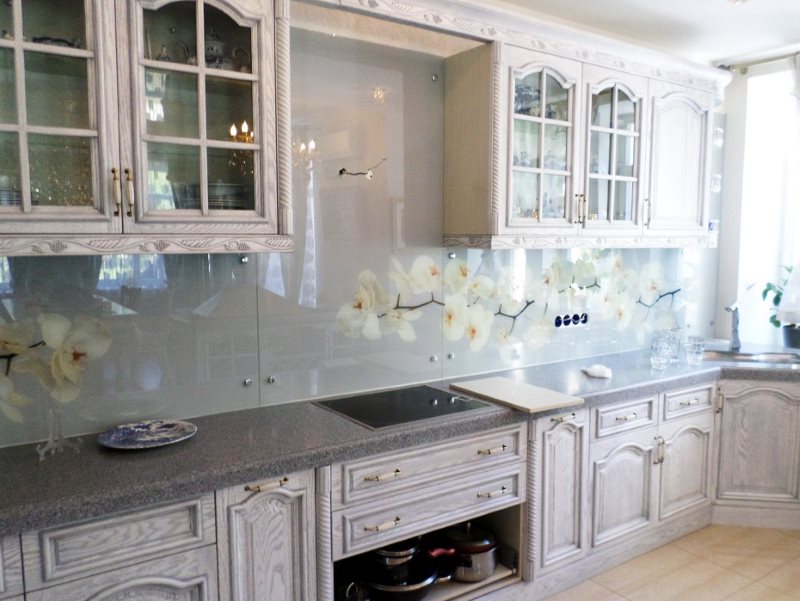
Glass surfaces shine on their own and visually expand the space, so they can be recommended for small kitchens
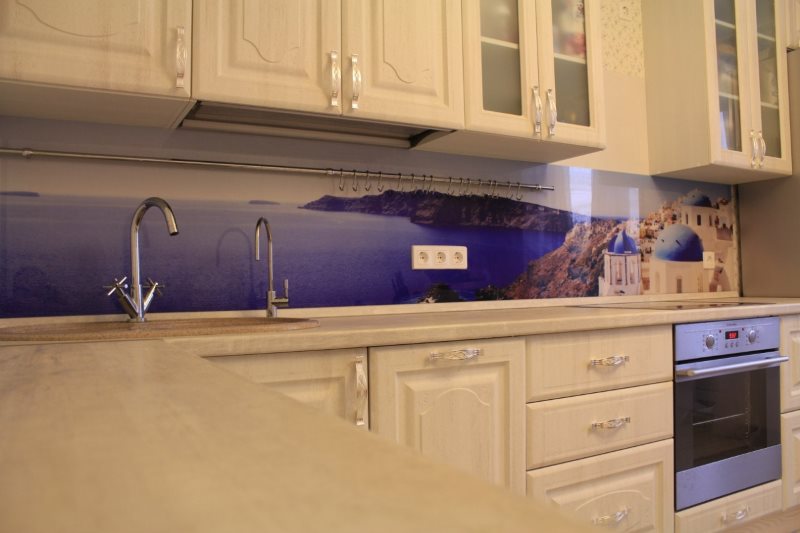
Glass allows you to realize original ideas using photo printing
When choosing a skinhead pattern, it is worthwhile to focus not on the purpose of the kitchen - cooking, but on the style. Do not put images of fruits and vegetables, cutlery and dishes. Give preference to small patterns with floral patterns of wildflowers for decoration in the style of Provence, imitation brocade or ornate ornaments for palace designs.
Interesting solutions
The modern variety of materials and technologies allows you to translate into reality the most daring design decisions, even in conservative classics.
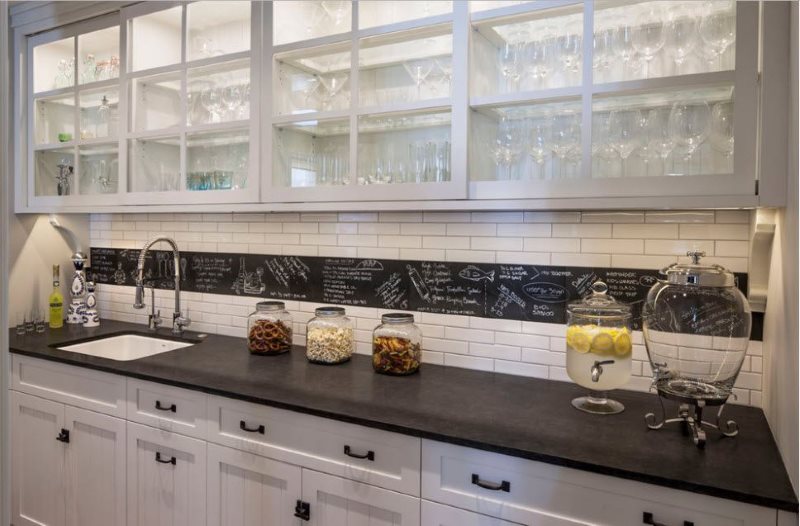
Ceramic apron with a strip of slate for recording your favorite recipes
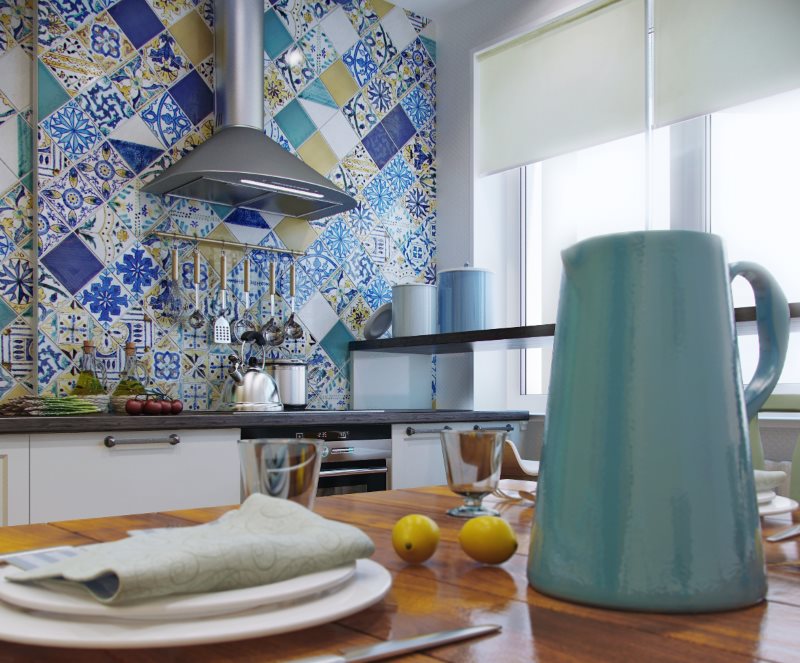
Bright apron in the Mediterranean style
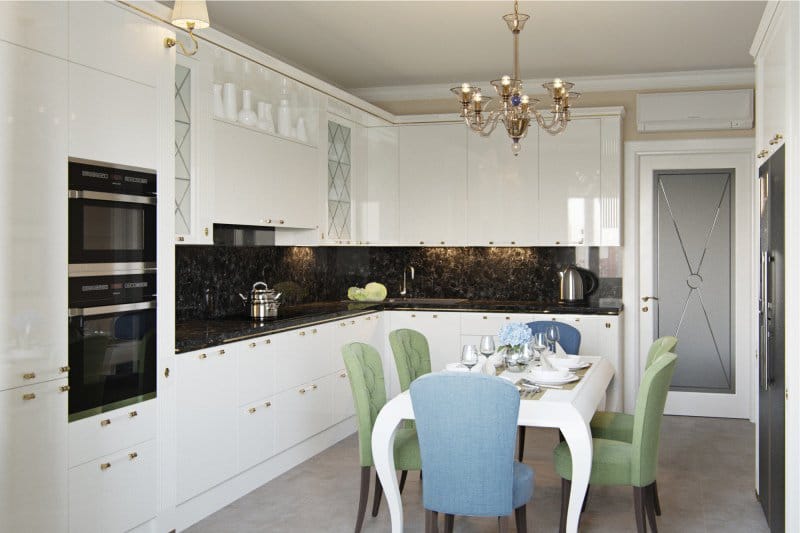
Black apron in the kitchen in the style of a modern classic
The classic design of the kitchen integrates wonderfully with the Mediterranean country and modern, without violating the overall concept. An apron can be exactly that touch that will make the design unique.
Video: tile boar in the interior of the kitchen


